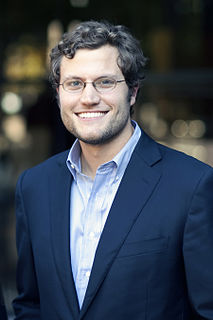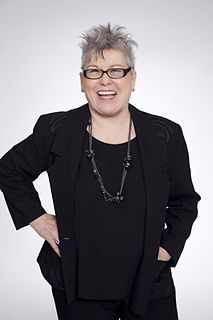A Quote by John Grisham
The two mistakes that come to mind are people who introduce a flood of characters in the first few pages. Where the reader has to stop and get out a flow chart and has to figure out who is who. And you just can't do that - introduce the first four generations of a character's family in the first chapter. You can introduce four or five characters at the most in the first chapter. Another mistake is to use big words that are not normally used in conversation to try to impress folks with your vocabulary.
Related Quotes
In the first few pages, Kundera discusses several abstract historical figures: Robespierre, Nietzsche, Hitler. For Eunice's sake, I wanted him to get to the plot, to introduce actual "living" characters - I recalled this was a love story - and to leave the world of ideas behind. Here we were, two people lying in bed, Eunice's worried head propped on my collarbone, and I wanted us to feel something in common. I wanted this complex language, this surge of intellect, to be processed into love. Isn't that how they used to do it a century ago, people reading poetry to one another?
Introduce your main characters and themes in the first third of your novel. If you are writing a plot-driven genre novel make sure all your major themes/plot elements are introduced in the first third, which you can call the introduction. Develop your themes and characters in your second third, the development. Resolve your themes, mysteries and so on in the final third, the resolution.
Four. That's what I want you to remember. If you don't get your idea across in the first four minutes, you won't do it. Four sentences to a paragraph. Four letters to a word. The most important words in the English language all have four letters. Home. Love. Food. Land. Peace. . .I know peace has five letters, but any damn fool knows it should have four.
I would say we had two goals when doing this CD. The first goal is to introduce people who have never seen the show before to the best comics that are on the show. And goal number two is to introduce people that they never heard of before and give you a bit more flavor of what the show is actually like. And those goals are very much in line with the philosophy of the show from the very beginning. It's the very best people who are out there.
I would look at the first chapter of any new novel as a final test of its merits. If there was a murdered man under the sofa in the first chapter, I read the story. If there was no murdered man under the sofa in the first chapter, I dismissed the story as tea-table twaddle, which it often really was.
But what if I make a mistake?' Will asked. Gilan threw back his head and laughed. 'A mistake? One mistake? You should be so lucky. You'll make dozens! I made four or five on my first day alone! Of course you'll make mistakes. Just don't make any of them twice. If you do mess things up, don't try to hide it. Don't try to rationalize it. Recognize it and admit it and learn from it. We never stop learning, none of us.
Everything you've ever read of mine is first-draft. This is one of the peculiarities of the comics field. By the time you're working on chapter three of your masterwork, chapter one is already in print. You can't go back and suddenly decide to make this character a woman, or have this one fall out of a window.
First person allows deeper insight into the protagonist's character. It allows the reader to identify more fully with the protagonist and to share her world quite intimately. So it suits a story focused on one character's personal journey. However, first person shuts out insights into other characters.






































